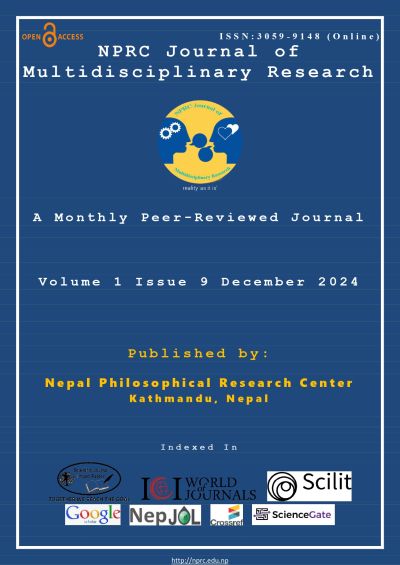Electronic Contracts in Nepal: Analyzing IT Bill, 2019 and Judicial Challenges
DOI:
https://doi.org/10.3126/nprcjmr.v1i9.74165Keywords:
consumer protection, e-contracts, legal framework, policy recommendations, consumer, protectionAbstract
The rapidly growing use of Information and Communication Technology (ICT) in Nepal has revolutionized business transactions particularly through electronic contracts (e-contracts) although there are still legal, technological and economic challenges in its implementation. Exploring security, adjudication, judicial capacity and challenges of e-contracts in Nepal, this study aims to recommend the ways such challenges could be addressed for a robust digital economy. In addition, it aims to analyze e-contracts in Nepal concentrating on the capacity of Nepali court system in handling diverse e-contract disputes, and provisions for security, settlement mechanisms, adjudication powers, and remedies in the IT Bill, 2019. Employing an analytical research design, this study uses secondary data obtained from various legal documents, academic literature, and industry reports. The findings show that there are disputes on Nepal's legal framework for e-contracts such as the Information Technology Bill, 2019. There are issues to be considered including legal recognition, authentication, jurisdiction, and consumer protection. Strengthening digital infrastructure, adopting block chain, enforcing cyber security, and promoting training and awareness programs could make the legal practice, policy, business, infrastructure, capacity building, dispute resolution, and international collaboration more effective.
Downloads
Downloads
Published
How to Cite
Issue
Section
License
Copyright (c) 2024 The Author(s)

This work is licensed under a Creative Commons Attribution-NonCommercial 4.0 International License.
This license enables reusers to distribute, remix, adapt, and build upon the material in any medium or format for noncommercial purposes only, and only so long as attribution is given to the creator.





